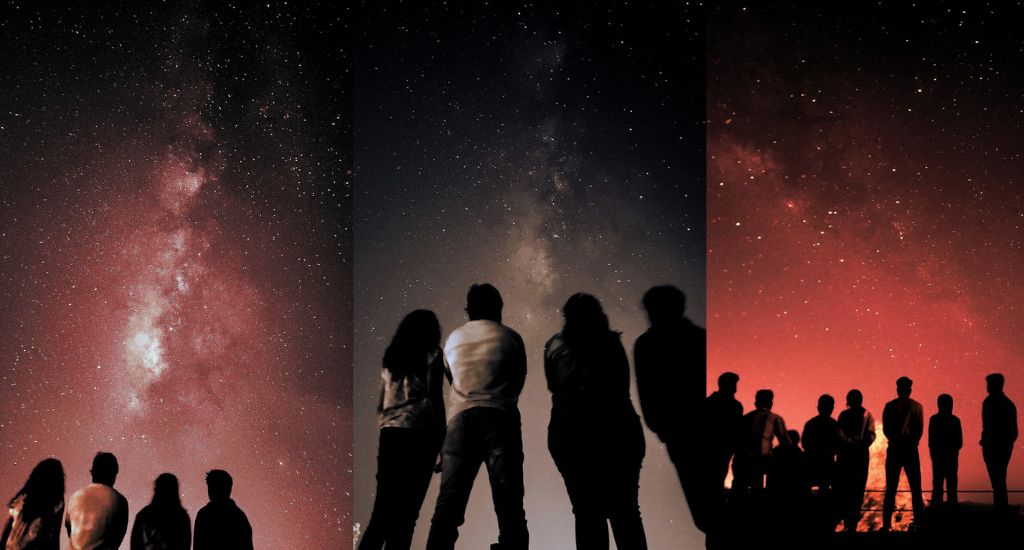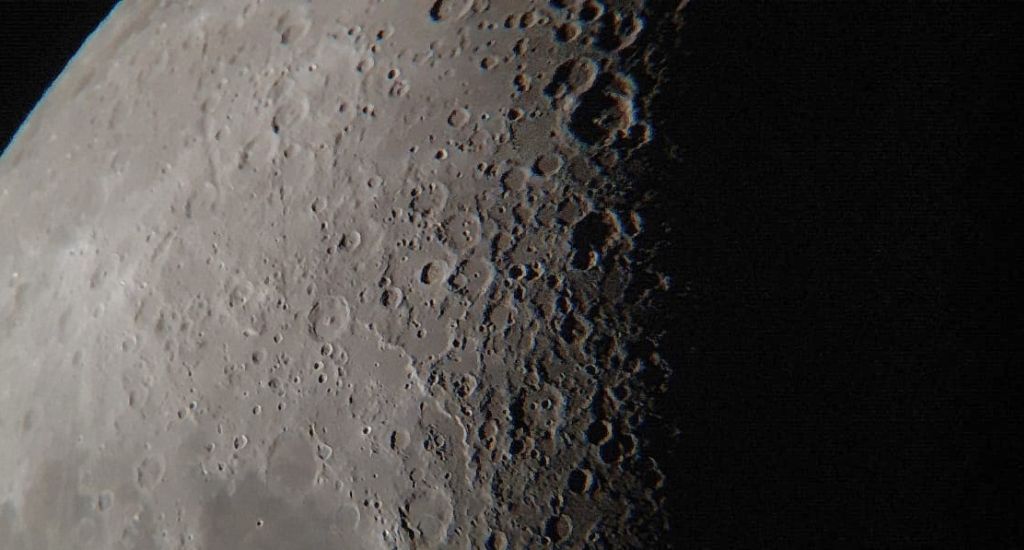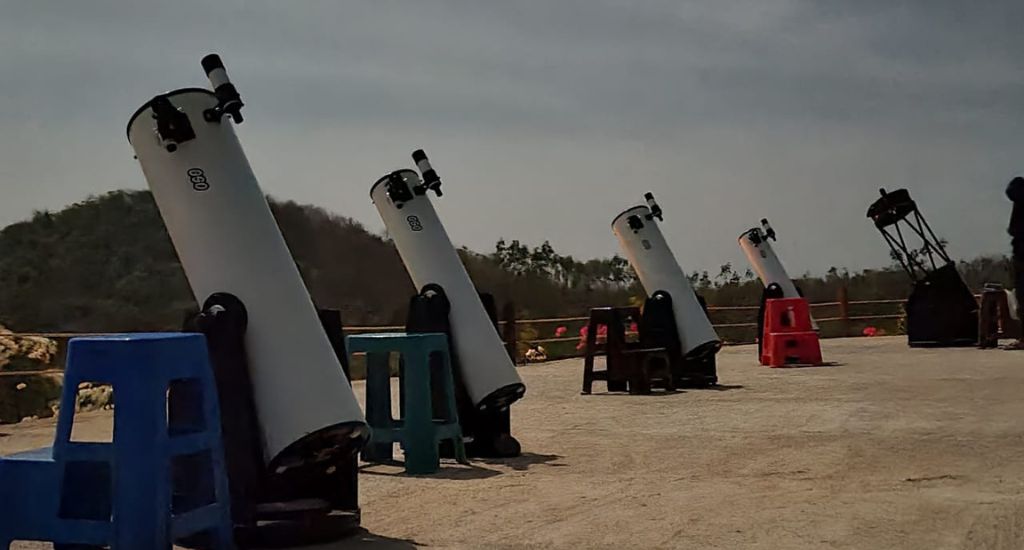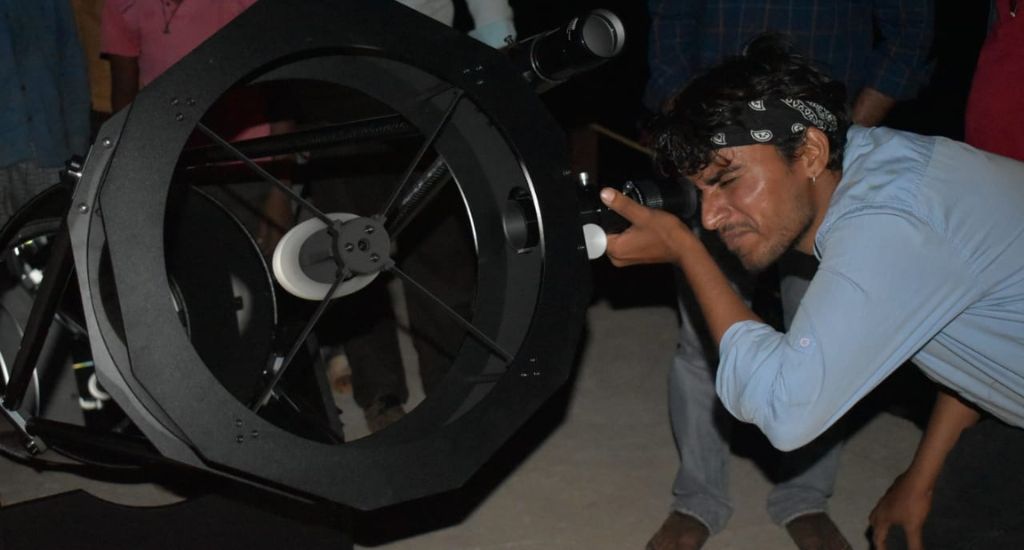
Karnataka youth aims for the sky with astro-tourism
Niranjan Kanagoudar from Haveri district has set up powerful telescopes in his farmland to let people watch distant stars for a reasonable price.

Niranjan Kanagoudar from Haveri district has set up powerful telescopes in his farmland to let people watch distant stars for a reasonable price.
The sky has literally been the limit for Niranjan Kanagoudar, a young entrepreneur on course to make a decent living. The 27-year-old from Haveri district in Karnataka has set up powerful telescopes in his 10-acre family farmland in Kunnur in the foothills of the Western Ghats.
Called the Interstellar Astro Farm, it is supposedly north Karnataka’s only astro-tourism site where people wanting to gaze at the distant stars can do so, of course at a price.
“Caught up in their busy lives, people have forgotten to look at the sky,” said Niranjan. “I wanted to show space to them.”
The idea to set up an astro-farm struck him in 2021, during his student days at Osmania University, Hyderabad, where he studied M.Sc in Astrophysics.
With the help of his two friends and family, he set up the site at the cost of INR 40 lakhs in March this year. Till May, hundreds of people from all over the state – Belagavi, Bangalore, Hospet – have already visited the astro-farm.

“When people look through the telescope, they are struck by the beauty of outer space. Their wonderment is palpable. There is some scepticism too,” he pointed out.
“When I show them Jupiter and Saturn, some people are confused whether what they are seeing is real or not,” Niranajan said. “Many think that I’m showing a photograph.”
Also Read | Science popularization helps tribal students spread wings
What about the locals? Have they visited the astro-farm?
“School students have been coming, but not anyone else. Most of the people around think of all this as sci-fi,” he lamented.
Nothing though can be further than the truth.
Astro-tourism is for anyone who is interested in looking at space and everything it contains. One does not need a degree for that. Institutes like Jawaharlal Nehru Planetarium in Bengaluru have been working to popularise astronomy in general. But these institutes are mostly situated in cities, inaccessible to the rural populace. An astro-farm in their own backyard provides a rare opportunity that many missed out on earlier.

To help visitors watch the sky in all its intricate and mysterious details, Niranjan has set up six Dobsonian telescopes. Greater the aperture, the clearer the vision becomes.
To allow visitors to capture the sights, Niranjan charges INR 800 a night (5.30 pm-9:30 am). Food and camping tents come with the package.
A clearer sky obviously allows better stargazing.
A nine-level numerical scale called Bortle is used to measure the light pollution. For example, Ladakh’s Henle village with little or no pollution is Bortle 1. In contrast, the city of Bengaluru qualifies as Bortle 9. The lower the number, the better the sky for space observation.
What about the Interstellar astro-farm? It qualifies as Bortle 2, making it an ideal place to observe the night sky.
Niranjan’s initiative has got a lot of attention and local media coverage.
Following regional news reports, the state government has assured help.
Also Read | Of cow urine and human waste: faith, folklore and science

NS Boseraju, the Minister of Science and Technology said this “historic achievement will set an example” for anyone who wishes to achieve something in the field of astro-tourism.”
He also added that he would support any future endeavours of Niranjan and other “socially-conscious” young people.
The promised support has also got Niranjan excited. He already has plans to install more powerful telescopes, when the astro-farm – currently closed for monsoon – reopens in October.
“Many galaxies appear faint as of now, so I’m planning to get more telescopes so the view can be as detailed as possible,” he said.
With his enterprise set to shine as brightly as some of the stars, he remains grateful to Santosh Surugund, his high school teacher. Surugud would take the students to talks by ISRO scientists arranged by the District Education Department and answer every question Niranjan had about space.
“Good teachers can change things. If I hadn’t received a positive response from him, I think I would be doing something else,” Niranjan explained.
Few would disagree with him.
Also Read | Mobile labs in rural Odisha promote science-based solutions
The lead image shows people gazing at stars at the Interstellar Astro Farm (Photo by Niranjan Kanagoudar)
Amulya B is a multimedia journalist, writer and translator based in Bengaluru. Her stories explore the intersection of culture, society and technology. She is the winner of Toto Funds the Arts for creative writing and Laadli Award. She is a Rural Media Fellow 2022 at Youth Hub, Village Square.